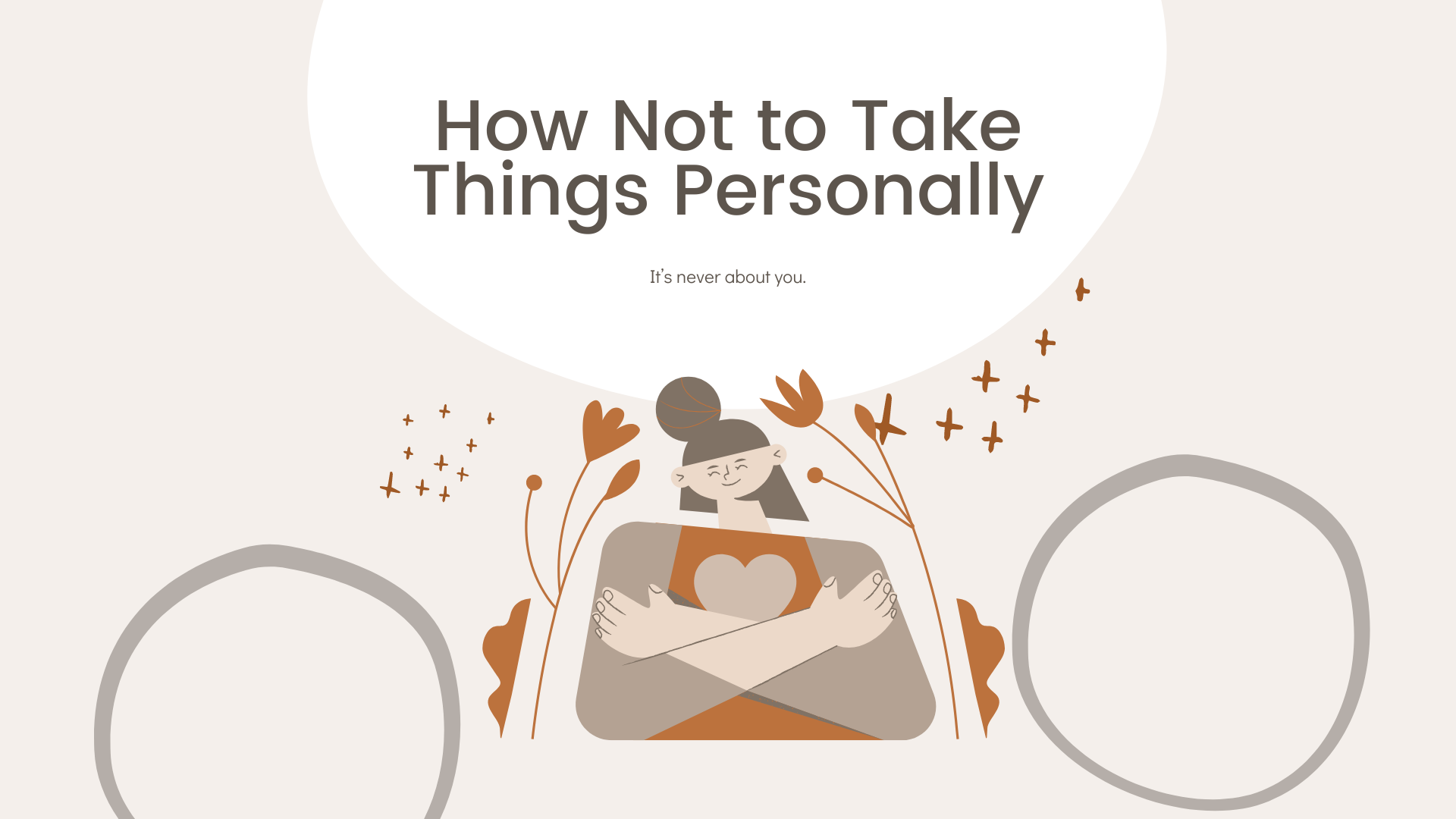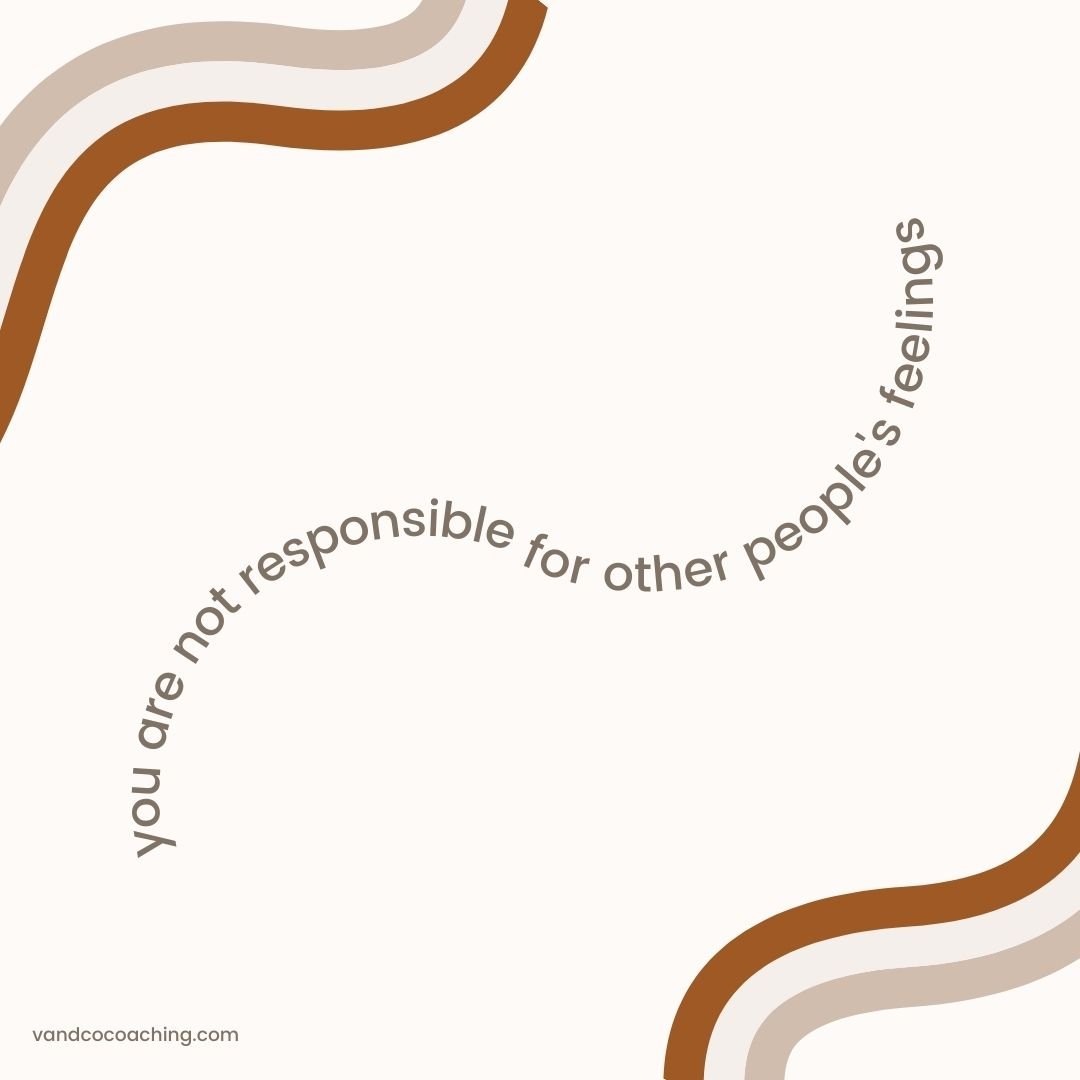It’s Never About You: How Not To Take Things Personally
Today I invite you to explore why not taking things personally might just be one of the most valuable life skills you can cultivate.
For me, the realization of this skill came during a stressful season at a former job. The demanding clients, exacting expectations, and neverending deadlines often had emotions running high and tensions flaring. One day, I turned to a colleague to vent about the next unreasonable push and he simply said, “I’m not taking that on.” He decided he wasn’t going to shoulder the emotional burden of whatever toxicity was flowing through the office that week. His words stuck with me, as they embodied a powerful truth: we have the choice of whether to internalize what’s around us or to simply let it go.
Letting It Get To You
My client Jessica got an offer for a great job. We had been discussing opportunities for growth for several sessions when she received a job offer that would provide her the autonomy and challenges she craved. A week before starting her job, she came to the session fuming about her aunt. At dinner a couple of nights prior, amidst all the compliments and congratulations of her family, Jessica’s aunt commented that if Jessica failed at her new job she could always get a job at one of the many restaurants hiring. Jessica couldn't believe her aunt could make such a mean-spirited comment referencing the possibility of her failing in her new job. Now, instead of enjoying some peaceful time off before her new start, she was angry and frustrated. This exciting new opportunity now became an obstacle awaiting her failure.
I asked Jessica, “What had you take your aunt’s comment so personally?” And she responded, “Well, why shouldn’t I take it personally - it was directed at me!”
So let me walk you through the concepts I shared with Jessica:
Concept - You Get To Choose What Gets to You
Taking things personally stems from a fundamental misunderstanding – the often unacknowledged belief that external criticisms or judgments hold weight and define us.
However, the truth is far more empowering: we are independent beings, capable of choosing whether to internalize others' opinions or, in the words of my former colleague, “not take them on.” Finding the power to do this means letting go of what others think and finding the truth within ourselves.
Believe It or Not, Not Everything is About You
We spend a lot of time in our heads and it’s sometimes hard to get outside of our thoughts and notice that not everything is about us. Nothing other people do is because of us; it is because of themselves.
What other people say and do is because of their own rules, fears, and perceptions. “But,” I can hear you ask, “what if the other person is literally telling us we’re terrible or is hurting us in some way? How can that not be personal?” It’s because their words and actions are a reflection of their own perceptions, experiences, and beliefs, rather than any valid assessment of our worth or character. Arriving at this conclusion means releasing ourselves of a couple of burdens:
Everything does not revolve around us. Don Miguel Ruiz has a quote I love, “Personal importance, or taking things personally, is the maximum expression of selfishness because we assume that everything is about "me."
By being offended or taking personally another’s suggestion, we give energy to a battle that need not be fought at all. It’s an unfortunate waste of resources.
It’s never about you…
…Until You Make It About Yourself
To understand how to not take things personally, you also need to cultivate the self-trust to define yourself for yourself. If something someone else has said impacts you personally, it may serve you to evaluate why. If nothing other people do is because of us, then, reciprocally, it’s always about what’s going on with us, not the other person.
Take my client, Jessica, for example. It was never about her aunt. Jessica took her aunt’s comment personally because she felt insecure about her new role. This is ok and normal as we all battle with imposter syndrome. Jessica was still feeling emotionally bruised from a toxic work environment, therefore her aunt’s words found a wound in which to enter.
As Elenor Roosevelt famously put it, “No one can make you feel inferior without your consent.”
n this situation, Jessica consented. Taking things personally is much more about ourselves than it is about the comments people make about us.
It’s Difficult Because Humans are Social Animals
Not gonna sugarcoat it, not taking things personally is easier said than done. We are only human, and by that I mean we are social animals.
There is rather morbid adage in evolutionary psychology that, “a lone monkey is a dead monkey.” This underscores the significance of cooperation and interconnectedness among us, the human family of primates. We are built to create strong bonds and social networks with others.
This is one of the reasons that we naturally take things so personally — give and take with other people is part of our DNA. It’s incredibly uncomfortable to consider not taking on suggestions from others, even if they're in the form of criticism.
So if this work is hard, that’s ok and 100% to be expected. If not taking things personally is challenging, please go easy on yourself and seek support if necessary.
The Work Begins With You
We have to train our minds to think differently about criticism and the impact of others’ words. Yes, it’s difficult to do even once and moreso to sustain, but it’s not impossible. Here are some practical steps to take:
Self-reflection: Take time to reflect when you find yourself reacting to criticism and comments from others. Ask yourself why certain comments trigger strong emotions in you. Understanding your triggers can help you respond more thoughtfully rather than reactively.
Empathy: Cultivate empathy towards others. Recognize that everyone has their own insecurities, fears, and struggles that influence their behavior and interactions. Viewing criticism with empathy toward what might be going on with the other person can help you respond with compassion rather than defensiveness.
Mindfulness Practice: Cultivate mindfulness through meditation, deep breathing exercises, or mindfulness activities. This helps you to observe your thoughts and emotions without judgment, allowing you to respond more consciously to external stimuli, including criticism.
Challenge your Judgement: Notice if you’re falling into judgemental mind, over-focusing on if someone is wrong or bad and you’re fighting to prove them wrong.
You Have The Power
We have more power over our reactions to others than we think. Taking things personally is a personal choice, one that we make every day, but it’s still your choice. Your worth is not determined by criticism or even external validation. Instead, it is rooted in your inherent value as an individual and whatever you choose to make of that.
So, the next time you find yourself tempted to take things personally, remember: it's never about you even if they're in the form of criticism – and that's perfectly okay.



























